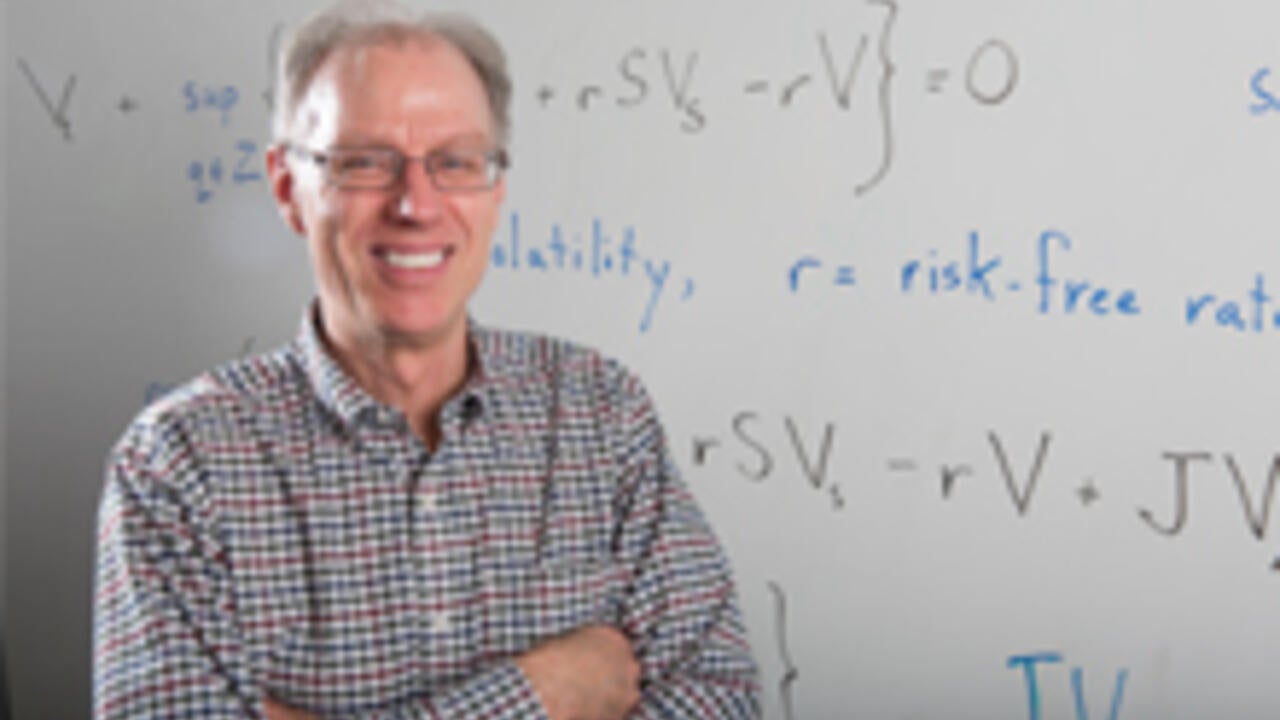
The mathematics of making money
Algorithm developed by Waterloo computer scientist shows online brokerages are wasting investors’ money

Algorithm developed by Waterloo computer scientist shows online brokerages are wasting investors’ money
By Staff Marketing and Strategic CommunicationsPeter Forsyth is a computer scientist who has developed an algorithm that shows online brokerages are likely not handling investors’ buy and sell orders in the best way possible.
"My recent research shows that the standard algorithm used by brokerages is not the best method. It's actually sub-optimal by quite a large margin," says Forsyth, a professor in Waterloo’s Cheriton School of Computer Science.

Forsyth works in the emerging area of computational finance, an applied branch of computer science that deals with matters of finance. Forsyth says, “When I tell people at a party that I work in computational finance, they all want to know some stock tips. That's not how it works."
Getting to the largest possible gain for a given amount of risk
Stock prices follow a random process, which means that stock prices are inherently unpredictable. "Nobody can tell you what the stock market is going to do tomorrow," says Forsyth.
So, the best that can be done is to make sure that your investments are "efficient", that is, get the largest possible expected gain, for a given amount of risk.
That’s where his recent research on algorithms and what is known as “optimal trade execution” comes in. It’s something that everyone with an online brokerage account likely uses.
The risk of buying quick versus buying slow
"When you place an order to buy, say 1000 shares, you will probably see that the order was filled using a series of buy orders, say 100 shares each,” explains Forsyth. “Each of these smaller orders was filled at slightly different prices."
The idea here is that if you place an order to buy a large block of shares on the market all at once, you will drive the price up temporarily. In order to minimize the price impact, it is better to break up the order into smaller lots. However, now you are exposed to the risk that the stock price can randomly move higher.
Forsyth says: "The idea is to determine the optimal trade-off between the cost of buying quickly versus the risk of buying slowly" and his new algorithm is much more efficient than the one typically used by brokerages.
Forsyth points out that five of his former Waterloo PhD students work
on optimal trade execution at Morgan Stanley. "And they
all drive much more expensive cars than me."

Read more
The Royal Society of Canada welcomes Drs. Ihab Ilyas and Laura Hug as part of the latest cohort of fellows and RSC College members

Read more
Waterloo team leverages AI and machine learning to develop a model that has the potential to reduce carbon emission from transportation by up to 18 per cent

Read more
Differential privacy, regulatory frameworks, education and collaboration are key solutions to building privacy-preserving technologies
The University of Waterloo acknowledges that much of our work takes place on the traditional territory of the Neutral, Anishinaabeg, and Haudenosaunee peoples. Our main campus is situated on the Haldimand Tract, the land granted to the Six Nations that includes six miles on each side of the Grand River. Our active work toward reconciliation takes place across our campuses through research, learning, teaching, and community building, and is co-ordinated within the Office of Indigenous Relations.